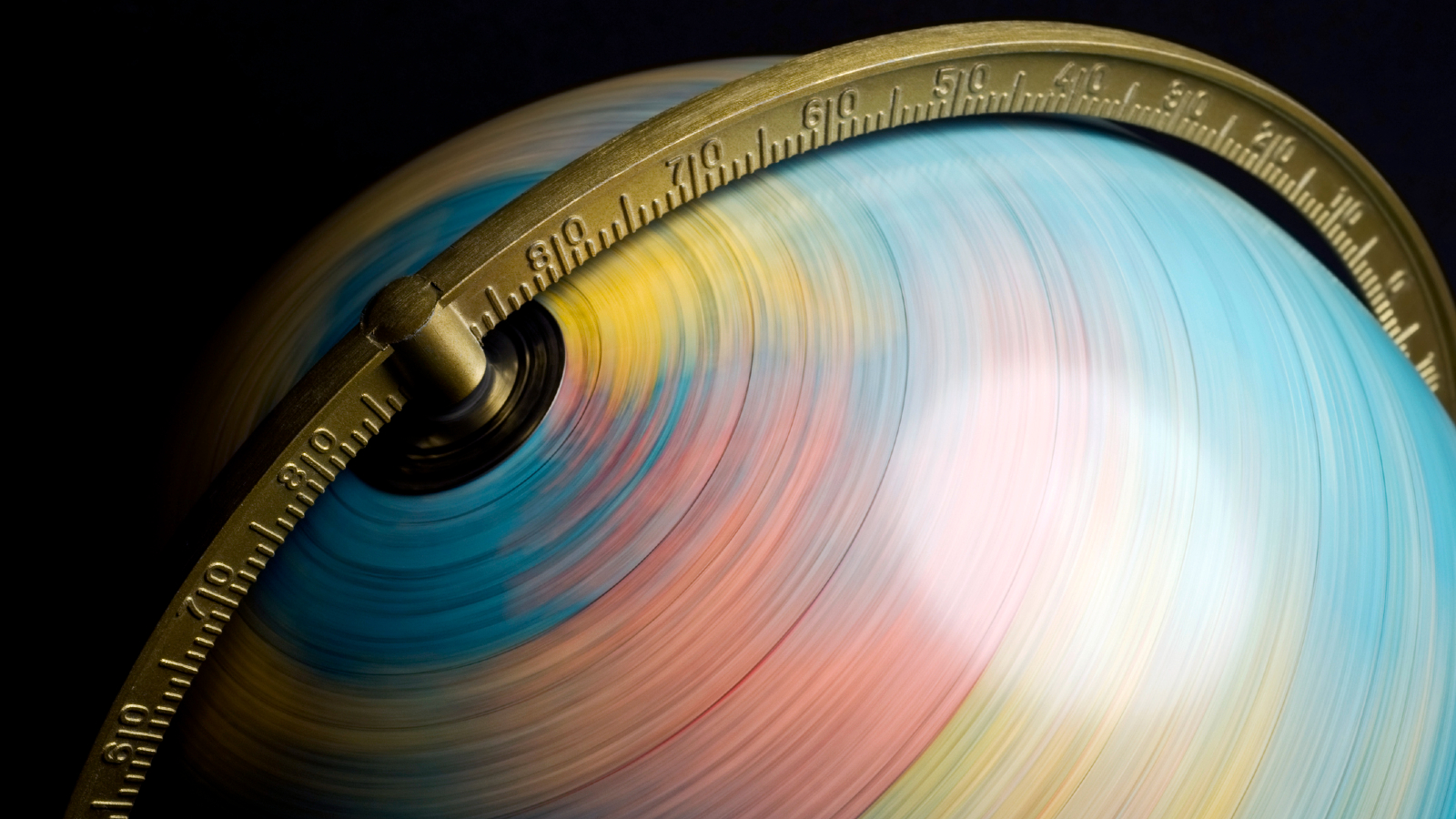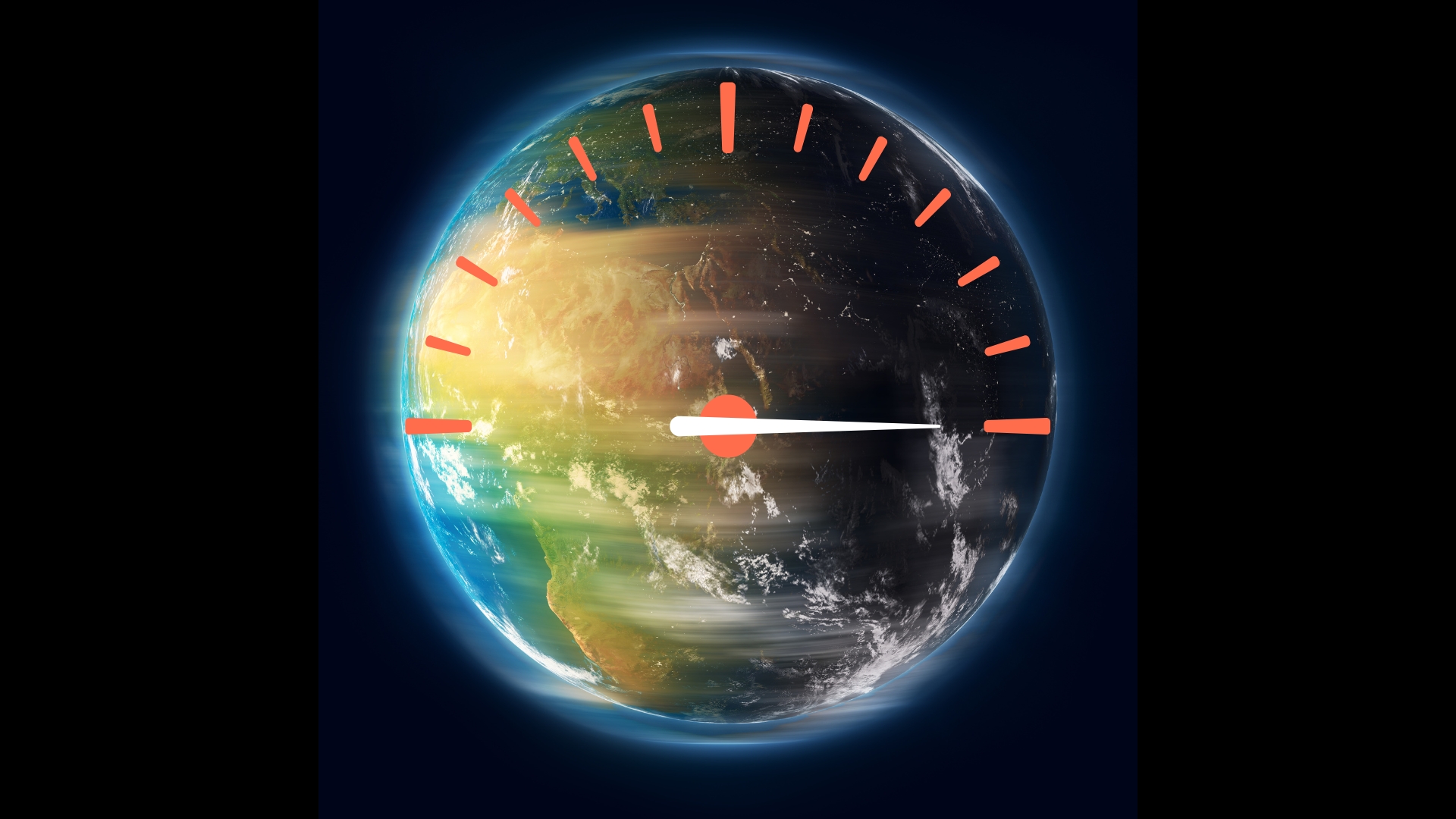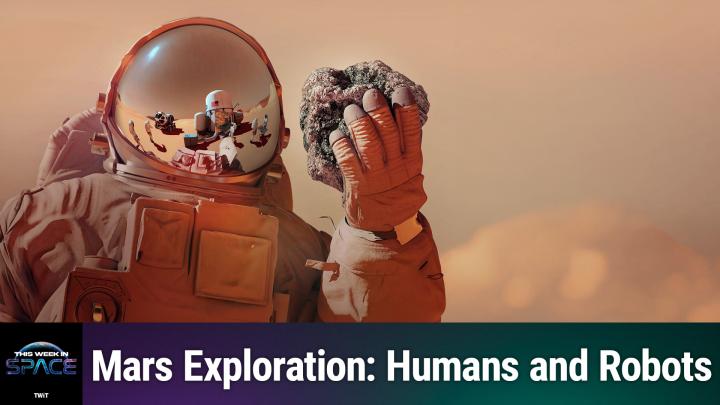Earth will spin faster today to create 2nd-shortest day in history
Our planet has been rotating at its fastest since records began in 1973.

Breaking space news, the latest updates on rocket launches, skywatching events and more!
You are now subscribed
Your newsletter sign-up was successful
Want to add more newsletters?
Earth will complete a full rotation in slightly less time than usual today (July 22), making it one of the shortest days ever recorded.
The difference will be just 1.34 milliseconds less than the standard 24 hours — not something you'll notice — but it's part of a puzzling trend in Earth's rotational behavior that has been unfolding in recent years. If it continues, a second may need to be subtracted from atomic clocks around 2029 — a so-called negative leap second, which has never been done before.
The speed of Earth's rotation isn't fixed. Long ago, a day was much shorter than the 24 hours — or 86,400 seconds — we're now accustomed to. According to a 2023 study, a day on Earth was approximately 19 hours for a significant part of Earth's early history, due to a balance between solar atmospheric tides and lunar ocean tides. However, over deep time, a day on Earth has become consistently longer. The primary culprit has been tidal friction from the moon, which has caused it to gradually move farther away from Earth. As it moves away, the moon saps Earth's rotational energy, causing Earth's rotation to slow and days to lengthen.
So why the sudden reverse?
From when records began (with the invention of the atomic clock) in 1973 until 2020, the shortest day ever recorded was 1.05 milliseconds less than 24 hours, according to Timeanddate.com. But since 2020, Earth has repeatedly broken its own speed records. The shortest day ever measured occurred on July 5, 2024, when Earth's rotation was completed 1.66 milliseconds faster than usual.
Looking ahead to 2025, scientists predicted that July 9, July 22, and Aug. 5 could be the shortest days of the year. However, new data suggests that July 10 took the lead as the shortest day so far in 2025, clocking in at 1.36 milliseconds less than 24 hours. On July 22, Earth is expected to complete its spin 1.34 milliseconds early, making it a close runner-up. If current predictions hold, Aug. 5 will be about 1.25 milliseconds shorter than usual, leaving July 22 as the second-shortest day of the year.
There are signs the acceleration may be easing. The rate of decrease in day length appears to be slowing, but the underlying cause of the recent rotational changes remains elusive.
Breaking space news, the latest updates on rocket launches, skywatching events and more!
One 2024 study suggested that the melting polar ice and rising sea levels may be influencing Earth's spin. However, rather than driving the acceleration, this redistribution of mass might be moderating it. A more likely culprit is deep below our feet — the slowing of Earth's liquid core, which could be redistributing angular momentum in a way that makes the mantle and crust spin slightly faster.
"The cause of this acceleration is not explained," Leonid Zotov, a leading authority on Earth rotation at Moscow State University, told Timeanddate.com. "Most scientists believe it is something inside the Earth. Ocean and atmospheric models don't explain this huge acceleration."
Zotov predicts Earth’s rotation may soon decelerate once again. If he’s right, this sudden speeding-up could prove to be just a temporary anomaly in the planet’s long-term trend toward slower rotation and longer days.

Jamie is an experienced science and travel journalist, stargazer and eclipse chaser who writes about exploring the night sky, solar and lunar eclipses, the Northern Lights, moon-gazing, astro-travel, astronomy and space exploration. He is the editor of WhenIsTheNextEclipse.com, author of A Stargazing Program For Beginners, co-author of The Eclipse Effect, and a senior contributor at Forbes.
You must confirm your public display name before commenting
Please logout and then login again, you will then be prompted to enter your display name.

